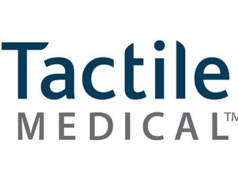Isobar Compression has been awarded a research contract from the Small Business Research Initiative (SBRI) for Healthcare, to assist in a feasibly study in primary care for the treatment of venous leg ulcers.
The research contract was awarded by SBRI for Healthcare as part of a series of awards recognising the current pressures in primary care and the need to advance the future of general practice.
Over 500,000 people in the UK have had venous leg ulceration, with between 170–190,000 suffering from lower limb ulceration at any one time (Posnett et al, 2009). At least 80% of these leg ulcers are due to problems in the veins (O’Meara et al, 2009).
Graduated compression therapy is the mainstay of treatment for venous leg ulcers and is generally applied using multi-layer bandages or compression socks. Compression socks are typically supplied in standard sizes and the pressure they produce is extremely variable and unreliable due to the wide variation in patient leg shape and size. Multi-layer bandaging is bulky and is applied by a specially-trained nurse, at least weekly, so is also time consuming.
Isobar Compression’s solution is to provide a compression sock that is bespoke to the individual patient. A portable 3D scanner captures at least 260,000 data points from the patient’s limb and this accurate measurement produces an exact fit for the individual leg with precise pressure to the nearest mmHg (millimetres of mercury) required. Isobar says that no other system in the world can do this as other manufacturers rely on tape measurements, which is subject to observer error.
The effect of Isobar compression socks on calf venous transit times has been demonstrated in research carried out at University Hospital South Manchester.
Jim Hampton, medical advisor at Isobar Compression, said, “We are delighted to receive a research contract from the SBRI. The grant will help Isobar Compression have a significant role to play in the management of venous ulcer disease. Isobar Compression socks are comfortable, durable, effective and cost effective, as well as saving a considerable amount of skilled nurse time.”
“Due to the precise pressure of Isobar Compression, clinicians are also excited about the application of our custom-fit socks for lymphoedema patients. For the first time, we can undertake research in primary care to understand the impact of different pressure profiles on healing and prevention.”
Twenty-two companies will share a £2.1 million investment to develop and commercialise novel technologies with the potential to revolutionise GP services. Advanced Therapeutic Materials, the parent company to Isobar Compression, received the award from the West of England Academic Health Science Network (AHSN).
Liz Mear, chair of the AHSN Network, commented, “There are few areas of our daily lives that remain untouched by technological advancement. Through the SBRI Healthcare programme, the AHSN Network is working with industry partners to develop solutions that will help deliver high quality GP services to a growing and ageing population, and ensure patients across the country benefit from new and innovative technologies.”
The successful projects have been selected for their potential value to the health service and on the improved outcomes delivered to patients. The companies will be supported and fully funded to demonstrate their technical feasibility for a six-month development phase.








